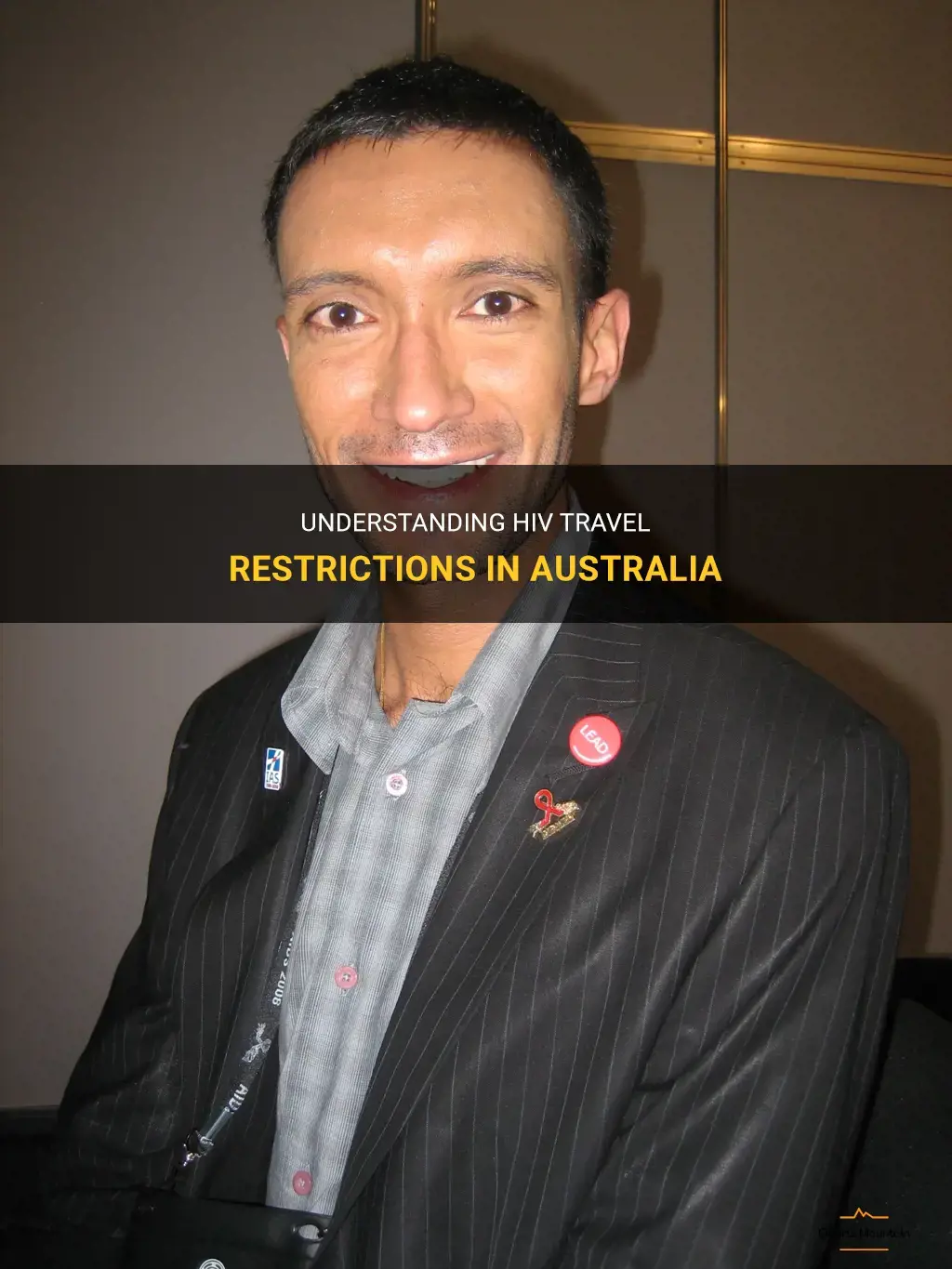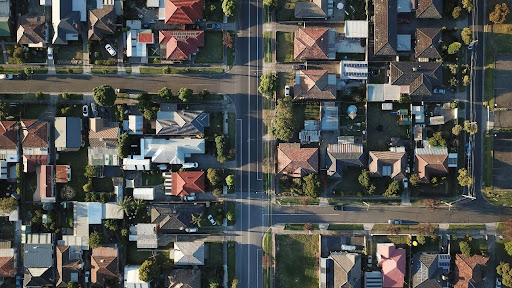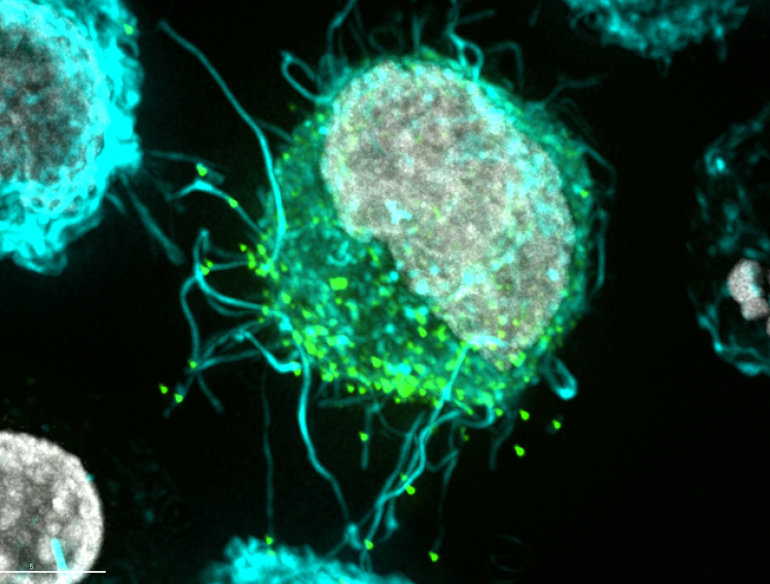

Australia - Regulations on Entry, Stay and Residence for PLHIV
Restriction category relative to australia.
- Countries with restrictions for long term stays (>90 days)
HIV-specific entry and residence regulations for Australia
REGULATIONS UPDATE UNAIDS reports that Australia has made reforms to its migration health assessment requirements and procedures, including an annual increase to the “significant cost threshold”, the elimination of the cost assessment related to health services for humanitarian visa applicants and improvement to increase the transparency of the health assessment process. Also, it has been confirmed that a HIV pilot programme for African student visa applicants was officially discontinued in 2011. HIV testing for permanent visa applicants remains in force. People living with HIV are treated similarly to other people with chronic health conditions and disabilities during the country’s immigration health assessment process. Applications for visas from people living with HIV will be assessed against criteria applying to anyone with a chronic health condition. (Source: 3) Editor’s note: Due to the HIV test requirement for permanent visa applicants, we continue to list Australia as a country applying residency restrictions. We will update this page as soon as further information becomes available.
Entry and residence regulations Applicants for visas to visit or migrate to Australia are required to meet certain health requirements. These help ensure that:
- Risks to public health in the Australian community are minimized
- Public expenditure on health and community services is contained
- Australian residents have access to health and other community services in short supply.
Temporary visas Applicants for a temporary visa do not generally need to complete an HIV test. The exceptions apply to temporary visa applicants intending to work or study to become a doctor, dentist, nurse or paramedic. Students (and their dependents) from sub-Saharan Africa who intend to study in Australia for 12 months or more are also tested for HIV. Permanent visas All applicants for a permanent visa must complete an HIV test if they are 15 years or older. Individuals under 15 who may be required to undergo testing are listed here: https://immi.homeaffairs.gov.au/help-support/meeting-our-requirements/health/who-needs-health-examinations If a person is found to be HIV positive, a decision on whether they meet the health requirement for a visa is considered on the same grounds as any other pre-existing medical condition. That is, the disease or condition is not likely to:
- Require healthcare or community services while in Australia
- Result in significant costs to the Australian community
- Prejudice the access of an Australian citizen or permanent resident to healthcare or community services.
A person who initially fails the health requirement, may have it subsequently waived if they are applying for a certain limited number of visa types. The circumstances under which they may have it waived are listed here: https://immi.homeaffairs.gov.au/help-support/meeting-our-requirements/health/who-needs-health-examinations
Up-to-date information, including information on Australia’s temporary and permanent visas, and the health requirements for each, is available at www.immi.gov.au . (Source 1,2) Some HIV/AIDS entry restrictions exist for visitors and foreigners seeking permanent residence in Australia. Depending on the type of visa you apply for, the length of your stay and your intended activities in Australia, you may be required to undergo a medical examination before the Australian Department of Immigration and Border Protection will issue you a visa. If during the course of the application process, you are found to be HIV positive, a decision on the application will be considered on the same grounds as any other pre-existing medical condition (such as tuberculosis or cancer), with the main focus being placed on the cost of the condition to Australia’s healthcare and community services. (Source: 4)
HIV treatment information for Australia
- Albion Street Centre 150 Albion St. Surry Hills 2010 NSW 2010 Australia Phone: 9332 1090 Fax: 9332 4219 E-mail: [email protected] Web: www.sesahs.nsw.gov.au/albionstcentre/
- Sydney Sexual Health Service Nightingale Wing 3rd. Floor Sydney Hospital Maquarie St. Sydney 2000 Phone: 9382 7440 Fax: 9382 7475
- AIDS Council of NSW (Acon Sydney) 9 Commonwealth St. Surry Hills P0 Box 350, Darlinghurst 1300 E-mail: [email protected] Phone: 9206 2000
HIV information / HIV NGOs in Australia
Global criminalisation of hiv transmission scan.

- Matthew McMahon, Assistant Director, Health Policy Section, Migration and Visa Policy, Department of Immigration and Citizenship, Belconnen ACT 2617 www.immi.gov.au , January 8, 2010; sent via Asia and Oceania Department, Ministry of Foreign Affairs, The Netherlands
- Michael Frommer, Australian Federation of AIDS Organisations, PO Box 51 Newtown NSW 2042 / level 1, 222 King Street, Newtown 2042, Australia, www.afao.org.au , by e-mail, August 28, 2014
- UNAIDS; Geneva, press release, July 10, 2014
- US State Department Of State; Bureau of Consular Affairs; https://travel.state.gov / December 17, 2019; consulted June 3, 2021
updated: 6/3/2021 Corrections and additions welcome. Please use the contact us form.
Comments on HIV-restrictions in Australia
- Type 2 Diabetes
- Heart Disease
- Digestive Health
- Multiple Sclerosis
- COVID-19 Vaccines
- Occupational Therapy
- Healthy Aging
- Health Insurance
- Public Health
- Patient Rights
- Caregivers & Loved Ones
- End of Life Concerns
- Health News
- Thyroid Test Analyzer
- Doctor Discussion Guides
- Hemoglobin A1c Test Analyzer
- Lipid Test Analyzer
- Complete Blood Count (CBC) Analyzer
- What to Buy
- Editorial Process
- Meet Our Medical Expert Board
Which Countries Restrict Travel to People With HIV?
It was only in 2010 that the United States finally lifted its 22-year ban on travelers with HIV , a law that prohibited all infected persons from obtaining tourist visas or permanent residence status in the U.S.. The order, initiated by George H.W. Bush in 2008, was made official by Barack Obama on January 4, 2010.
While efforts are being made to end similar laws throughout the world, the Global Database on HIV-Specific Travel & Residence Restrictions (a joint European initiative published by the International AIDS Society) reports that as of 2023, 56 out of 200 countries are known to have entry regulations for people living with HIV, and seven of these countries will categorically refuse entry without exception. In some of these countries, entry may be allowed, but there are restrictions depending on the length of stay. For example, 54 countries have restrictions on stays over 90 days (student and work visas); whereas less than 10 countries have laws that can affect travelers visiting for less than 90 days (tourists). Furthermore, 18 of these countries will deport visitors discovered to have HIV.
HIV Travel Restrictions in Practice
It is important to note, however, that there is often a lack of clarity about these laws, with some either not addressing HIV directly (describing only "infectious disease" concerns) or not enforcing the laws all that stringently, if at all. As such, the assessments provided below are couched in terms that best reflect whether an action "will," "can" or "may" take place.
Similarly, there is a lack of clarity about the import of antiretroviral drugs —whether the drugs are allowed for personal use; how much can be brought in if they are permitted; or if possession of such constitutes the right to deny entry.
For these reasons, it is advised that you always speak with the consulate or embassy of any of the listed destinations if you plan to visit.
Countries With Restrictions for People Living with HIV
Algeria (>90 days)
Aruba (>90 days)
Australia (>90 days)
Azerbaidjan (>90 days)
Bahrain (>90 days)
Belize (>90 days)
Bhutan (>2 weeks)
Bosnia Herzegovina (>90 days)
Brunei (no entry, will deport)
Cayman Islands (>90 days)
China (>90 days, will deport)
Cuba (>90 days)
Cyprus (>90 days)
Dominican Republic (>90 days)
Egypt (>90 days, will deport)
Equatorial Guinea (no entry, will deport)
Honduras (>90 days)
Iran (>90 days)
Iraq (>10 days, possible deportation)
Israel (>90 days)
Jordan (no entry, will deport)
Kazakhstan (>90 days)
Kuwait (>90 days, will deport)
Kyrgyzstan (>60 days)
Lebanon (>90 days, will deport)
Malaysia (>90 days, will deport)
Marshall Islands (>30 days)
Mauritius (>90 days)
Montserrat (>90 days)
Nicaragua (>90 days)
North Korea (will deport)
Oman (>90 days, will deport)
Papua New Guinea (>6 months)
Paraguay (>90 days)
Qatar (>1 month, will deport)
Russia (>90 days, will deport)
Samoa (>90 days)
Saudi Arabia (>90 days, will deport)
Seychelles (>90 days)
Singapore (>90 days)
Slovakia (>90 days)
Solomon Islands (no entry, will deport)
St. Kitts and Nevis (>90 days)
St. Vincent and Grenadines (>90 days)
Sudan (>90 days)
Suriname (entry restrictions)
Syria (>90 days, will deport)
Tonga (>90 days)
Tunisia (>30 days)
Turks and Caicos Islands (>90 days)
United Arab Emirates (UAE) (no entry, will deport)
Uzbekistan (>90 days)
Virgin Islands (>90 days)
Yemen (no entry, will deport)
Centers for Disease Control and Prevention (CDC), U.S. Department of Health and Human Services (HHS). Medical examination of aliens—Removal of human immunodeficiency virus (HIV) infection from definition of communicable disease of public health significance. Final rule . Fed Regist. 2009;74:56547–56562.
The Global Database on HIV-Specific Travel & Residence Restrictions. Regulations on entry, stay and residence for PLHIV .
By James Myhre & Dennis Sifris, MD Dr. Sifris is an HIV specialist and Medical Director of LifeSense Disease Management. Myhre is a journalist and HIV educator.

HIV-related travel restrictions
- Press release
- Personal stories
- Infographic
Time for Australia to drop visa restrictions for migrants living with HIV, advocates say
Debbie* will never forget the moment she was diagnosed with HIV.
Key points:
- HIV advocates are urging the government to unwind rules imposing visa restrictions on people living with the condition
- The government concedes Australia's migration health requirements do "not meet community expectations"
- Australia is one of the last 40 or so countries with visa restrictions for people living with HIV
It was 2011, two years after she and her husband had moved to Australia as skilled migrants from Papua New Guinea.
The mother of four was lying in a Queensland hospital bed and doctors were trying to figure out why she was feeling so unwell. That's when they ran blood tests.
The one for human immunodeficiency virus, or HIV, came back positive.
"It was overwhelming," Debbie said.
"It was very hard for me to understand and accept that I had this."
Debbie's husband was then screened and he also tested positive.
Looking back, she is thankful for the support from doctors, nurses and counsellors, who helped her realise HIV was no longer a death sentence, so long as it's managed through medications.
After their diagnoses, Debbie and her husband went on to build a successful business that allowed them to put all four of their children through private school and university.
When they applied for permanent residency (PR) in January 2016 they were shocked to discover their application wouldn't be easy due to their HIV status.
"It was very stressful," Debbie said.
"I had mental health issues like depression, stress and anxiety. I wasn't in a good place."
What are the visa rules for HIV?
Australia is one of only around 40 countries with visa restrictions for people living with HIV.
The United States scrapped its restrictions about a decade ago. The United Kingdom and New Zealand have also dropped theirs.
Australia was criticised in 2021 by the United Nations-affiliated group UNAIDS for having laws that "discriminate against people on the basis of their HIV status".
"The Australian government should wipe away all of the barriers that stop people (with) HIV moving freely to and from Australia," Health Equity Matters CEO Darryl O'Donnell said.
Advocates will use the International AIDS Society's annual conference, being hosted in Brisbane this week, to call on the government to unwind those laws.
They will argue the policy instils stigma and that Australia will struggle to eradicate transmission of the virus without change.
HIV diagnosis in Australia has halved in the past decade and the country could be transmission-free in three-to-five years, according to data from UNSW's Kirby Institute, released last week.
But for that to happen, more work is needed in migrant communities where testing rates are typically low and transmission rates aren't falling as hoped.
Mr O'Donnell said, despite the fact people wanting to remain in Australia permanently will need to be tested eventually, the visa restrictions ingrain stigma and scare people out of testing early.
"If there's fear that a HIV positive test result will become a flag for an application for residency, people will hold back."
For those who are positive, a cost analysis is done to determine if the person will exceed the government's "significant cost threshold".
"The cost of antiretrovirals (the medicines used to fight HIV) are around $11,000 per year," said Alexandra Stratigos, the principal solicitor of the HIV/AIDS Legal Centre.
That's about double the government's cost threshold, she said — meaning everyone with HIV exceeds it.
Those on eligible visas who then apply for PR may be able to get around the policy if they're granted a health waiver.
However, approval of that waiver is discretionary, and people can go to the Administrative Appeals Tribunal (AAT) — a body that reviews government decisions — to appeal.
Ms Stratigos represents clients at the AAT and said her results proved the policies were outdated.
"We have a relatively high success rate of getting people a permanent visa in the end. But it takes many years of processing," she said.
Ms Stratigos said the existing rules force some applicants to reveal their HIV status to their employer, raising privacy issues, and they can lead to people staying in abusive or exploitative situations because they want to avoid testing.
Rules 'don't meet community expectations'
In most other areas, Australia's response to HIV and AIDS has been world-leading, advocates say.
Collaboration between health officials and at-risk communities has been key to success, underpinned by high testing rates and a focus on prevention and treatment.
It's got Australia on track to potentially be the first country in the world to virtually eliminate community transmission of HIV.
But, Mr O'Donnell said, our immigration policy "hasn't kept up with the advances in science".
"This is an anachronism. It's a throwback to two decades past when we didn't have good treatment for HIV," he said.
"We now have medicines that are very affordable and very cheap. There really isn't an economic impost for someone coming to Australia because of HIV... but people are still locked into a process of seeking residency that can drag on for years and years."
In a statement, Immigration Minister Andrew Giles agreed the health-related visa rules were problematic.
"Australia's approach to migration health requirements does not meet community expectations," he said.
"I see this almost every week in the personal decisions I make to intervene in the visa system via ministerial intervention."
Mr Giles said he has "engaged on the issue" with Health Minister Mark Butler, as well as HIV experts and those with lived experience since taking the immigration portfolio.
Debbie's fight for her PR visa stretched on for seven years. She got it earlier this year after an AAT ruling.
"We were not a burden to society. We were trying to prove that and we did," she said.
*Name changed to protect privacy
- X (formerly Twitter)
Related Stories
This nun decided 'to care for humanity' as aids hysteria swept the world.
Grim Reaper HIV ads 'contributed' to violence against LGBT community, inquiry told
- Aids and HIV
- Diseases and Disorders
- Government and Politics
- Health Policy
- Immigration
- Immigration Policy

HIV & Travel
When you’re living with HIV and planning to travel, there’s a few things to consider before leaving on your journey.
Travel Destinations
Some countries have restrictions on travel for people living with HIV, even for tourists and short-term stays. Check the Global Database on HIV related travel restrictions to check restrictions before you travel. This website is provided by Deutsche AIDS-Hilfe, the European AIDS Treatment Group and the International AIDS Society.
Check Smartraveller provided by the Australian Department of Foreign Affairs and Trade to check general travel restrictions and get destination safety advice if you’re planning an overseas trip.
The ‘Yellow Book’ offering USA-based CDC Health Information for International Travel published online by the Centers for Disease Control and Prevention website could also be useful to check.
Can I get covered by Travel Insurance?
Yes, you can . There are the usual cover restrictions of pre-existing conditions . Living with HIV counts as a pre-existing condition. If you are on effective anti-retroviral treatments and discussed your travel with your doctor then it is unlikely you will develop any HIV-related problems. In Australia you must declare your HIV status, but this does not exclude you from getting insurance . In Australia, it is illegal to discriminate against someone due to their HIV status.
Australia has a ‘ Reciprocal Health Care Agreement ‘ with some countries. That means coming from Australia, you are already covered for some health care in those countries that Australia has an agreement with. Find out which countries are covered by the agreement.
If HIV isn’t covered, do I really need Travel Insurance?
Yes, definitely! Health care can be very expensive in other countries. There are still a number of things that could happen to you, like an accident or you could catch a serious stomach bug and need to see a doctor.
It’s important that you are able to get access to the best available care and get back home if you need to and travel insurance is the best way to ensure there are fewer complications in doing this.
- Get travel insurance that will protect you in the event you get COVID (and make sure you can cancel the travel insurance easily!)
- Be prepared for delays, be prepared for cancellations and be alert about COVID in the countries you are visiting.
Can I take my medication with me or can I buy it overseas?
That will depend on which country you visit. If you are travelling for a short time as a tourist or for work then it is best to ensure you are travelling with enough medications to cover your trip. Make sure you carry enough medications within your carry-on luggage, just in case your booked luggage goes missing. Make sure you have checked the HIV related travel restrictions before travelling.
- Keep the medicines in their original packaging, don’t decant them (moving them into other bottles), and don’t scratch out the labels.
- Don’t forget to carry a letter from your doctor. This letter does not need to mention HIV.
- Plans to get medication from friends living with HIV or getting ’emergency’ medication when you’re overseas or across borders usually lead to extra problems.
- Never try to make your HIV medication ‘go further’ by increasing the interval of the dose. For example instead of one pill every day, one pill every 2nd or 3rd day. This can cause you to develop resistance to your HIV medication, which means the medication can no longer control the HIV virus effectively. If you haven’t got enough medication with you, it’s safer to run completely out of your medication and stop. Then start when you can access your HIV medication again.
- Try to carry enough medication for your entire trip, with some extra medication in case something goes awry.
When travelling with medications overseas or if you’re travelling into Australia, always carry a letter from your doctor listing the medications you are carrying for a ‘medical condition’ as well as a copy of your prescription. There is no requirement to state what the ‘medical condition’ is, for which the medications have been prescribed. DOWNLOAD: Medical explanation letter when travelling .
Before you head off…
If you’re on HIV treatments make an appointment with your doctor at least one month before you travel to discuss the vaccinations and preventative tests you might need to undertake before your travel. Ensure with your doctor that your HIV is not likely to be a problem while you are travelling.
If you are not on treatments it is advisable not to start antiretroviral treatments too close to your travel date. Discuss this with your doctor.
For more information on travelling with medicine and medical devices
I’m living with HIV and visiting Australia from overseas. What do I need to know?
- Check if the country you’re coming from has a ‘ Reciprocal Health Care Agreement ‘ with Australia.
- Organise your medication. If there is no “Reciprocal Health Care Agreement” you might consider bringing your medication with you when you travel to Australia.
- Organise travel insurance. If your country of origin does not have a reciprocal agreement with Australia it is advisable to have travel insurance organised before your arrival or on your arrival. Some people assume that healthcare is ‘free’ in Australia which is only true for its residents, those with a permanent resident visa or other visa where it is clear that access to healthcare is part of that visa. For everyone else the provision of healthcare is expensive and can add an unexpected significant financial burden to your trip.
- Decide what visa you need! Changing your visa once you have arrived in Australia can be difficult. In terms of your obligations to declare your HIV-status, granting of visas and other legal responsibilities for working and travelling in Australia, this link to the HIV/AIDS Legal Centre will provide some assistance. There are no HIV restrictions on visitor visas, unless you have a communicable disease, such as untreated Tuberculosis (TB) or you have been travelling in Africa. In these circumstances you are obligated by immigration laws to declare these at the boarder otherwise the penalties are quite harsh and you may be deported immediately. You can find more information on The Department of Immigration and Boarder Protection website.
Useful Travel Tips and Websites
- Keep copies of everything, and in separate bags in case lost/stolen.
- Make sure your vaccinations are all up to date, and discuss preventative tests and vaccinations with your doctor well before you travel.
- Always get travel insurance! Healthcare can be extremely expensive in other countries.
- Decide what visas you will need and give yourself plenty of time to apply for them.
- www.smartraveller.gov.au/destinations
- www.health.gov.au/health-alerts/covid-19/international-travel
- www.choice.com.au/travel/money/travel-insurance/articles/travel-insurance-pandemic
- www.australia.gov.au/international-travel
- www.servicesaustralia.gov.au/international-covid-19-vaccination-certificate-proof-your-covid-19-vaccinations
- www.homeaffairs.gov.au

Proudly sponsored by:
Disclaimer | Your Privacy | Rights and Complaints | ©2009-23 PLNSW. All Rights Reserved
Positive Life NSW is an ACNC registered Australian Charity
Understanding Hiv Travel Restrictions In Australia
- Last updated Sep 09, 2023
- Difficulty Beginner
- Category United States

Australia is a country known for its stunning landscapes, vibrant cities, and outdoor adventures. However, it's important to note that there are travel restrictions in place for individuals with HIV. This controversial policy has sparked debate and raised questions about human rights and discrimination. In this article, we will explore the history of these travel restrictions in Australia and examine the impact they have on those living with HIV.
What You'll Learn
What are the current hiv travel restrictions in australia, are there any exceptions to the hiv travel restrictions in australia, how do the hiv travel restrictions in australia compare to other countries, is there a movement to change or eliminate the hiv travel restrictions in australia, what impact do the hiv travel restrictions have on individuals living with hiv in australia.

According to recent data from the World Health Organization (WHO), there are currently no specific travel restrictions for people with HIV entering or living in Australia. This means that individuals with HIV can travel to Australia without facing any restrictions based solely on their HIV status.
In the past, there were restrictions and requirements in place for people with HIV who wanted to enter Australia. However, these restrictions were lifted in 1997, making Australia one of the first countries to remove HIV-related travel restrictions. The removal of these restrictions was based on evidence that HIV cannot be transmitted through casual contact and that travel restrictions targeting individuals with HIV had no public health benefit.
Since then, Australia has adopted a policy that is in line with international guidelines and best practices. The Australian Government's Department of Health states that HIV is not a barrier to entry or residency in Australia. Therefore, people with HIV are treated like any other traveler or resident, and their HIV status is not considered when assessing their immigration or visa applications.
It is important to note that while there are no specific travel restrictions for people with HIV in Australia, individuals are still subject to general immigration and visa requirements. These requirements may include a valid passport, a visa, and meeting health and character criteria. However, these criteria are not specific to individuals with HIV and apply to all travelers and applicants.
In addition to the absence of travel restrictions, Australia also provides access to comprehensive healthcare services for people with HIV. The country has a publicly funded National Partnership Agreement on HIV, aiming to reduce the transmission of the virus and improve the health outcomes for individuals living with HIV.
Overall, Australia has made significant progress in eliminating HIV-related travel restrictions and ensuring that individuals with HIV are not discriminated against. The country's approach aligns with current scientific evidence and promotes equality and dignity for individuals living with HIV.
Bangladesh Government Implements Travel Restrictions to Combat COVID-19
You may want to see also
Australia has strict immigration laws in place to protect citizens and residents from the transmission of HIV. These laws restrict the entry and residency of individuals who are living with HIV. However, there are some exceptions to these HIV travel restrictions in Australia.
The main exception to the HIV travel restrictions is for individuals who are applying for certain types of visas, such as skilled worker visas or student visas. In these cases, an applicant's HIV status is not a determining factor in the visa application process. This means that individuals who are living with HIV can still apply for and be granted visas to visit or live in Australia.
In addition to the visa exceptions, there are also specific circumstances in which the HIV travel restrictions can be waived. These circumstances include situations where an individual is seeking medical treatment in Australia and their presence is deemed to be of significant benefit to public health. This waiver can be granted by the Minister for Immigration and Border Protection on a case-by-case basis.
It is important to note that even if an individual is exempt from the HIV travel restrictions, they may still be required to provide relevant medical documentation and undergo health assessments as part of the visa application process. This is to ensure that any potential risks related to HIV transmission are properly managed.
The Australian government is committed to ensuring that individuals living with HIV have equal access to immigration opportunities. The exceptions to the HIV travel restrictions are a reflection of this commitment, allowing individuals to visit or live in Australia for various reasons, including work, study, or medical treatment.
It is worth noting that HIV travel restrictions vary from country to country, and individuals living with HIV should always check the specific immigration regulations of the destination country before planning any travel. It is also advisable to seek professional legal advice or contact the Australian Department of Home Affairs for further information regarding the exceptions to the HIV travel restrictions in Australia.
Navigating Travel Restrictions in Bodega Bay: What You Need to Know
In recent years, there has been a significant shift in the approach towards HIV travel restrictions around the world. While some countries still have strict policies in place, others have moved towards a more inclusive and progressive approach. Australia is one such country that has made significant strides in this area.
Australia's approach to HIV travel restrictions has evolved over the years. In 1988, the country implemented a policy that banned individuals living with HIV from entering the country. This policy was a reflection of the prevailing fear and stigma surrounding the virus at the time.
However, in 1991, the Australian government recognized the need for change and started reviewing its HIV travel restrictions. This led to the introduction of a new policy in 1993, which allowed individuals living with HIV to enter the country for short-term visits, provided they met certain criteria, such as having an undetectable viral load and not engaging in high-risk behavior.
Since then, Australia has continued to revise its HIV travel restrictions to ensure that they align with the current scientific evidence and global best practices. In 2013, the country introduced a new policy that abolished the requirement for individuals with HIV to declare their status when applying for a visa. This marked a significant step forward in reducing the stigma associated with HIV and ensuring that people living with the virus are treated with dignity and respect.
Today, Australia's approach to HIV travel restrictions is considered one of the most progressive in the world. The country allows individuals living with HIV to enter for short-term visits, such as tourism or business trips, without the need for a specific HIV-related visa. There are no restrictions on the length of stay, and individuals are not required to disclose their HIV status when applying for a visa.
Australia's approach also extends to individuals who wish to study or work in the country. The government does not impose any HIV-related restrictions on student visas or work visas. However, individuals applying for permanent residency or citizenship may still be subject to certain health checks, including HIV testing, as part of the standard immigration process. These checks are not specific to HIV and apply to all visa applicants.
In comparison to other countries, Australia's HIV travel restrictions are considered among the most liberal. Many countries still have policies in place that either ban individuals living with HIV from entering the country altogether or impose strict requirements and limitations on their travel. Some countries also require individuals to undergo mandatory HIV testing as part of the visa application process.
For example, the United States maintains a policy that bans individuals living with HIV from entering the country unless they obtain a special waiver. This policy has drawn criticism from human rights organizations and medical professionals, who argue that it is discriminatory and outdated. Similarly, many countries in the Middle East and Asia have strict policies in place that restrict the entry and stay of individuals living with HIV.
In conclusion, Australia's approach to HIV travel restrictions is considered one of the most progressive and inclusive in the world. The country has moved away from the discriminatory policies of the past and now allows individuals living with HIV to enter and stay for short-term visits without the need for specific HIV-related visas. While there is still room for improvement, Australia's approach sets an example for other countries to follow in their quest to eliminate stigma and discrimination against individuals living with HIV.
Understanding Travel Restrictions for 13-Year-Olds: What Parents Need to Know
Australia has been known for its strict regulations when it comes to allowing people with HIV to enter the country. However, in recent years, there has been a growing movement to change or eliminate these travel restrictions.
Currently, people who are HIV-positive are required to disclose their status when applying for a visa to enter Australia. They are also required to undergo a medical examination to determine their health status. If the applicant is found to have an infectious disease, including HIV, they can be denied entry or have their visa application rejected.
These restrictions have been in place since the 1980s when HIV was still widely misunderstood and feared. At the time, it was seen as a way to protect the Australian population from the spread of the virus. However, with advancements in medical treatment and a better understanding of HIV, these restrictions have come under scrutiny.
Advocacy groups, such as the Australian Federation of AIDS Organizations (AFAO), have been pushing for the elimination of these travel restrictions. They argue that these regulations are discriminatory and do not reflect the current understanding of HIV transmission and treatment.
In recent years, there have been some positive developments in this area. In 2014, the Australian government removed the requirement for HIV-positive people to disclose their status when applying for short-term visas, such as tourist visas. This was seen as a step in the right direction towards a more inclusive and understanding policy.
However, the travel restrictions still remain in place for longer-term visas, such as those for work or permanent residency. This means that people living with HIV face significant barriers when it comes to migrating to Australia.
The AFAO and other advocacy groups continue to call for the complete elimination of these travel restrictions. They argue that HIV should be treated like any other chronic health condition, and that people living with HIV should not face discrimination or barriers when it comes to travel and migration.
There is also a growing body of evidence that supports the removal of these restrictions. Numerous studies have shown that people living with HIV who are on effective treatment have an extremely low risk of transmitting the virus. In fact, the risk of transmission is effectively zero in cases where the person has an undetectable viral load.
Countries such as Canada, New Zealand, and the United States have already repealed their HIV travel restrictions, recognizing that they are outdated and discriminatory. It is hoped that Australia will follow suit and join the global movement towards more inclusive and non-discriminatory policies.
The Australian government has hinted at a review of the current travel restrictions, but no concrete actions have been taken thus far. It is clear that there is a need for a more evidence-based and compassionate approach to HIV travel restrictions in Australia.
In conclusion, there is a growing movement to change or eliminate the HIV travel restrictions in Australia. Advocacy groups, such as the AFAO, argue that these restrictions are discriminatory and do not align with the current understanding of HIV transmission and treatment. There is also a growing body of evidence that supports the removal of these restrictions. While some positive steps have been taken, there is still work to be done to create a more inclusive and non-discriminatory policy. It is hoped that the Australian government will review and update the current travel restrictions to reflect the changing understanding of HIV.
Navigating the New Normal: Understanding Funeral Travel Restrictions
HIV travel restrictions have long been a topic of debate and controversy in many countries around the world. These restrictions, which limit the ability of individuals living with HIV to travel to certain countries, have been criticized for perpetuating stigma and discrimination against people with HIV. In Australia, individuals living with HIV also face travel restrictions that impact their ability to freely and easily travel internationally.
The impact of these travel restrictions on individuals living with HIV in Australia is significant. Firstly, these restrictions can have a detrimental effect on the mental and emotional well-being of people with HIV. The restrictions can reinforce feelings of isolation and exclusion, as individuals may feel their HIV status limits their ability to fully participate in global travel opportunities. This can lead to increased stress, anxiety, and even depression among those affected.
Furthermore, the restrictions can also have financial implications for individuals living with HIV. Some countries require individuals to disclose their HIV status when applying for a visa, and in some cases, this can result in the denial of the visa altogether. This can result in wasted travel expenses, such as non-refundable airline tickets and accommodations, as well as potential loss of income if the individual is unable to attend work or other commitments.
These restrictions also contribute to the perpetuation of stigma and discrimination against people with HIV. By singling out HIV as a condition that warrants travel restrictions, it sends the message that individuals with HIV are a threat to public health, despite scientific evidence to the contrary. This reinforces the outdated notion that HIV is a punishment or a moral failing, rather than a manageable medical condition.
While Australia has made progress in recent years in lifting some travel restrictions for individuals living with HIV, there are still countries that enforce strict regulations. This not only impacts the freedom of individuals to travel for personal reasons but also restricts the ability of professionals, including healthcare workers and researchers, to participate in international conferences and collaborate on important research projects.
In conclusion, the HIV travel restrictions in Australia have a significant impact on individuals living with HIV. They can contribute to feelings of isolation, have financial implications, perpetuate stigma and discrimination, and limit professional opportunities. It is important for governments around the world to re-evaluate and eliminate these travel restrictions in order to ensure the equal rights and opportunities for all individuals, regardless of their HIV status.

Fort Polk Travel Restrictions: What You Need to Know
Frequently asked questions.
There are no specific travel restrictions for people living with HIV entering Australia. The Department of Home Affairs does not require disclosure of HIV status for visa applications, and HIV is not one of the diseases listed under the Australian Immigration Health Requirement.
No, you do not need to declare your HIV status when entering Australia. The Australian Department of Home Affairs does not require disclosure of HIV status for visa applications or entry into the country. HIV testing is not a standard part of the immigration medical examination.
Yes, people living with HIV are eligible to study or work in Australia. HIV status is not a barrier to education or employment in the country. Employers and educational institutions are prohibited from discriminating against individuals based on their HIV status, as outlined in the Australian Human Rights Commission Act.
No, there are no restrictions for people with HIV on accessing healthcare in Australia. The country has a comprehensive healthcare system that provides access to medical treatment, including antiretroviral therapy (ART) for people living with HIV. The Australian government also provides subsidised medications for HIV treatment through the Pharmaceutical Benefits Scheme.

- Julia May Author Editor Reviewer Traveller

- Duke Trotter Author Editor Reviewer Traveller
It is awesome. Thank you for your feedback!
We are sorry. Plesae let us know what went wrong?
We will update our content. Thank you for your feedback!
Leave a comment
United states photos, related posts.

Essential Items to Pack for a Memorable Week-Long Camping Trip
- Feb 01, 2024

Understanding the Implications of NHS Travel Restrictions
- Sep 30, 2023

Essential Items to Pack for a Winter Trip to Europe
- Mar 06, 2024

13 Fun Things to Do in Lombard, IL
- May 07, 2023

Essential Items to Pack for a Memorable Trip with Your Boyfriend
- Dec 26, 2023

The Ultimate Guide on Essential Items to Pack for a Four-Month Trip
- Dec 22, 2023

Does HIV/AIDs Stop You From Entering Australia?
Most visa applicants must meet minimum health standards before the Australian Government will grant a visa.
Australia has a duty to protect its citizens from the introduction of dangerous or infectious diseases from visitors or migrants to our country.
Visa applicants are required to complete a HIV blood test, along with other medical examinations, if they are:
- over 15 years of age;
- applying for a permanent residency visa; and/or
- intending to work (or study to become) a doctor, nurse, dentist, or paramedic in Australia.
Applicants may also be required to undergo a HIV test if:
- under the age of 15 years old;
- they have a history of blood transfusions; and
- there is a clinical indication that the applicant may be HIV-positive (or the biological mother was HIV positive).
The Australian Government generally do not consider HIV or hepatitis to be a threat to public health unless the applicant:
- plans to work as a doctor, dentist, nurse, or paramedic in Australia;
- has a certain level of viral load; and
- intend to undertake procedures where there is a risk of contact between the visa applicant’s blood and the patient’s open tissue.
Transparency
It is extremely important to be transparent with the Department of Home Affairs (‘Department’).
If a visa applicant is HIV-positive, has hepatitis or a family member is HIV-positive/has hepatitis, the Medical Officer of the Commonwealth (MOC) will determine whether the applicant is likely to be a significant cost to the Government in health care services.
Being HIV positive does not automatically mean that the applicant will be denied.
Most people fail the health requirement due to the expensive costs associated with antiretroviral therapy.
The Australian Government has the discretion to ‘waive’ the health requirement on certain visas.
It can be waived based on compassion grounds determined on a case-by-case basis.
Contact Bambrick Legal to schedule a consultation with our migration team:
- Fill in our enquiry form here
- Call us on 08 8362 5269
- Like us on Facebook
- Follow us on LinkedIn
Read more about our Visa and Migration services here.
Related Blog – Health Requirements & Your Visa
Business & Commercial Law
Corporate & personal insolvency, dispute resolution, employment law, migration & citizenship law, notary public, property law, taxation law, wills, estates & probate, send us a message, for enquiries, please fill in the following contact form.

- Immigration to Australia for those who are HIV positive
- Health, Visas & Immigration

Introduction
Australian visas can be subject to a requirement which commits applicants to demonstrating that they meet certain health criteria.
In order to determine an applicant’s capacity in which to do this, certain temporary and most permanent visa applicants, need to undertake a health examination to satisfy the Department of Immigration & Border Protection (‘DIBP’) that they meet those criteria, details of which we will explore below. An immigration health check in this respect, can and often does, include a HIV test.
The health criteria Where applicable, affected visa applicants are assessed against a number of different health requirements which are contained across Schedule 4 of the Migration Regulations 1994. The requirement in each criterion generally requires applicants to be assessed against the following:
1. Whether the non-citizen is free from tuberculosis; and
2. Whether the non-citizen is free from a disease or condition that is, or may cause him/her to be, a threat to public health in Australia or danger to the Australian community; and
3. Whether the non-citizen is free from a disease or condition which would be likely to require health care or community services or, meet the medical criteria for the provision of a community service and that the provision of such services would be likely to:
i. result in a significant cost to the Australian community in the areas of healthcare and community services; or
ii. prejudice the access of an Australian citizen or permanent resident to health care or community services.
This test applies, regardless of whether the healthcare or community services will be used in connection with the non-citizen with the relevant disease or condition.
Discussion Whilst the first two of the above requirements are not generally relevant in our view to those with HIV, the third one usually is.
In this respect, the DIBP in carrying out an assessment of an applicant’s capacity to satisfy this requirement engages the services of a medical officer to provide an opinion as to whether an affected applicant’s condition would likely result in significant healthcare and community service costs if a visa were to be granted. The current DIBP policy threshold for the level of costs regarded as being significant is $40,000.00.
For temporary visa applicants, the estimated cost for their proposed stay in Australia is assessed over the period that the visa is intended to be granted for. For permanent visa applicants, the time period for estimating costs is generally assessed over a five (5) year period (but can be longer).
Because of that threshold and the relatively high costs of the Highly Active Anti-Retroviral Therapy program, it is often the case (depending on the nature of the applicant’s viral load and condition), that a HIV affected person is unable to satisfy the relevant health criterion.
Generally speaking and despite the foregoing, HIV positive applicants who are not on treatment and not anticipated to be for the duration of any visa, can receive lower costings or even meet the health criteria for shorter term visas and because of this, care needs to be taken in terms of what period of stay is proposed in any temporary visa application.
Is it possible to live permanently in Australia if the non-citizen is HIV positive?
The answer to this is maybe. This depends on what type of visa the person has applied for and in certain circumstances the health criterion which can capture HIV positive applicants can be waived. To this end, health waivers can be obtained for a range of family, skilled and other visa types but it is not universally available. A health waiver can be accessed by demonstrating that certain circumstances exist which warrant a waiver of the relevant health criterion in the first instance.
What factors are considered for a health waiver?
The circumstances that the DIBP will take into consideration in terms of determining whether a health waiver should be granted, generally include:
1. The impact on any Australian citizen children and the extent of any family ties;
2. The effect on an applicant’s health if forced to relocate;
3. The benefits the affected applicant and/or their family members can bring to the Australian community and the economy more generally by allowing the waiver;
4. The applicant and/or any sponsor’s ability to offset the potential costs of treatment; and, amongst other things
5. Any other relevant factor(s).
If a non-citizen is HIV positive can they get a partner visa for example?
The answer to this is yes potentially they can. Partner visas are one of the visas that do have a health waiver embedded within them however this is by no means a guaranteed proposition that an affected non-citizen will succeed with it.
An affected non-citizen applicant for a visa which has a health waiver provision needs to explore as a matter of first principles whether there is scope for them to argue based on the foregoing circumstances, entitlement to such a waiver.
For any visa applicant, careful consideration needs to be applied towards whether the person can meet the legislative requirements to even be able to make an application, as well as to be granted the visa. This is no different but perhaps is even more amplified, for those who are HIV positive.
Making a visa application for a HIV positive person will often require careful strategic considerations in terms of identifying an appropriate visa option which has a health waiver provision. Once this is identified, and in conjunction with any treating providers, one of the first things to do is to establish the full extent of the condition in terms of matters such as the current CD4+ cell count, what treatment algorithm is being pursued as well as whether there are co-infection issues amongst a whole range of other things.
Once and in conjunction with establishing the health landscape, detailed preparation and evidence gathering needs to be applied towards the chosen pathway such that despite the diagnosis, the affected applicant has optimum prospects towards being able to enter or remain in Australia.
Contact us today for a confidential discussion about how we can help »
[email protected] Phone: 1300 193 326
Related Posts

Aussie Settlers – Blog on Temporary Housing

Driving in Down Under: An Insider’s Guide to Aussie Roads

How do you get an Australian Citizenship certificate, who is eligible and what are the benefits?

Immigration Spotlight: Details of the 2023-2024 State Nomination Programs

Talk To An Expert
Our lawyers have proven success in even the most challenging visa cases. Trust us with your visa as life’s too short to have your visa refused. Call us today on 0731669100
BOOK A CALL WITH A LAWYER
Free Consultation
Lorem ipsum dolor sit amet, consectetur adipiscing elit. Ut accumsan commodo tempor.
- Aussie Settlers Blog
- Australian Residents & travel
- Citizenship
- Employment & Immigration
- Family & Partner Visas
- Immigration Law Specifics
- Migration & Culture
- News and Updates
- Sporting visa
- Staff Profiles
- Students and Student Visas
Employer Nominated Visa Factsheet
Sponsorship obligations.
With Gift Aid, your generous donation of £ 10 would be worth £ 12.50 at no extra cost to you.
I am a UK taxpayer and I understand that if I pay less Income and /or Capital Gains Tax than the amount of Gift Aid claimed on all my donations in the relevant tax year, it is my responsibility to pay any difference.
In our 35th year we’re asking people to donate £35 – that’s just £1 for every year we’ve been providing life-changing information. Any donation you make helps us continue our work towards a world where HIV is no longer a threat to health or happiness.
- £5 allows us to reach millions of people globally with accurate and reliable resources about HIV prevention and treatment.
- £10 helps us produce news and bulletins on the latest developments in HIV for healthcare staff around the world.
- £35 means we can empower more people living with HIV to challenge stigma with our information workshops, videos and broadcasts.
HIV and travel

- Make sure you pack enough of your anti-HIV drugs to cover your trip.
- Some live vaccinations are not appropriate for people with HIV.
- Some countries refuse work or residency visas to people living with HIV.
Many people living with HIV travel regularly for work, business, study, and for pleasure. In most cases, HIV is not a barrier to travel and holidays. This page provides an introduction to some of the issues you may want to think about if you are planning to travel.
As for other long-term health conditions, it is sensible to consider your health and medication when you make your travel plans. At the most basic level, consider if you are well enough to undertake the trip you are planning.
People living with HIV are able to travel to most countries of the world. But some countries have restrictions on entry for people with HIV, most often for people applying for a work or resident’s visa. See Travel restrictions below.
Also, find out if you need any vaccinations or other preventive medicines, and if it is safe for you to have them. What vaccinations you might need depends on where you are travelling to. If you are accessing travel vaccinations through your GP, it is important that they know you have HIV so they can give you the most appropriate care. It’s also important your GP knows about all the drugs (including anti-HIV drugs) you are taking, in case there are any possible interactions with drugs you might be given for travelling, such as anti-malarials or antibiotics. People with HIV are recommended to avoid some live vaccinations. Find out more on our page on the recommended vaccinations for people living with HIV.
Travelling with HIV treatment
Temporarily switching to injectable hiv treatment, treatment breaks, timing your doses, accessing medical treatment away from home, travel restrictions.
It might be very difficult, or even impossible, to get supplies of your medication once you’ve left home – even if you are just taking a short trip in the UK or Europe. Therefore, make sure you take enough of all your medicines with you to last the full duration of your trip. It might be wise to count out your medicines before you travel and to take a few additional doses just in case you are delayed.
It’s safest to carry your medication in your hand luggage, as this is less likely to get lost. Or you may choose to put some in your hand luggage and some in your suitcase, in case either bag is lost. If you are travelling to another country it makes good sense to have a copy of your prescription or a letter from your doctor explaining that your medicines are for a chronic medical condition. Find out more on our page on travelling with HIV medication .
If you feel uncomfortable about travelling with your HIV medication or are concerned about entry restrictions for people with HIV, one option might be take injectable HIV treatment. Depending on what is available where you are, your doctor may be able to provide an injection which will cover you for the duration of your trip. You may need to switch back to daily tablets when you return.
At the time of writing, the only complete HIV treatment provided by long-acting injections is a combination of cabotegravir and rilpivirine. In Europe, the brand name for injectable cabotegravir is Vocabria, while the brand name for injectable rilpivirine is Rekambys. In North America and Australia, the two drugs are packaged together, with the brand name of Cabenuva.
The injections can be taken either once a month or every two months. They would not suitable for a trip of longer than two months. For more information, see our page on cabotegravir and rilpivirine injections .
Treatment breaks are not recommended. If you are thinking of taking a break from your HIV treatment to travel, then you should discuss the possible risks of this with your doctor. These risks include developing resistance to your drugs, being more vulnerable to health problems in the future and – if you have a low CD4 cell count – of becoming ill while you are not taking treatment.
If you are travelling across time zones, this will have implications for the time you take your medication. Generally, it’s best to adapt to the time zone of your destination as quickly as possible – if you usually take medication with breakfast at home, you should take it with breakfast during your trip. Keeping the same routines around pill taking will probably help your adherence.
undetectable viral load
A level of viral load that is too low to be picked up by the particular viral load test being used or below an agreed threshold (such as 50 copies/ml or 200 copies/ml). An undetectable viral load is the first goal of antiretroviral therapy.
Measurement of the amount of virus in a blood sample, reported as number of HIV RNA copies per milliliter of blood plasma. Viral load is an important indicator of HIV progression and of how well treatment is working.
A drug-resistant HIV strain is one which is less susceptible to the effects of one or more anti-HIV drugs because of an accumulation of HIV mutations in its genotype. Resistance can be the result of a poor adherence to treatment or of transmission of an already resistant virus.
chronic infection
When somebody has had an infection for at least six months. See also ‘acute infection’.
The act of taking a treatment exactly as prescribed. This involves not missing doses, taking doses at the right time, taking the correct amount, and following any instructions about food.
If you are stable on treatment with an undetectable viral load, then taking one dose of your drugs a few hours early or late, because of a change in time zones, will not usually cause problems. You can get more detailed advice on our page on travelling with HIV medications . You can also ask for help from your doctor or pharmacist.
If you live in the UK and are travelling elsewhere in the country, you should contact the nearest accident and emergency department if you need emergency care. You can be seen by a GP away from home as a ‘temporary resident’ if your trip is for under two weeks. If you are entitled to free NHS care, you can get this anywhere in the UK.
The UK has agreements with some countries allowing for free or reduced cost medical care that a person may need. This includes members of the European Union, Australia and New Zealand, but there are restrictions on the types of medical treatment that are covered. UK residents should carry a Global Health Insurance Card (GHIC) when travelling.
It may also be wise to consider taking out travel insurance. Most policies specifically exclude treatment for a pre-existing medical condition (this would include HIV), but will still provide cover if you have an accident or become ill with something unrelated to HIV. Some companies provide travel insurance cover that includes HIV. You can get more detailed information on our page on travel insurance.
A number of countries restrict entry for people with HIV. This means that foreigners with HIV may be refused entry, denied permission to work or settle, or even be deported.
A few countries ban all foreign HIV-positive individuals from entering a country; others have no entry restrictions for tourists but require individuals to be HIV negative in order to apply for a work or residence permit. There's more detailed information on our page on travel restrictions.

Data @ Kirby Institute
Human immunodeficiency virus (HIV) is a virus that attacks the immune system. Without treatment, HIV causes acquired immunodeficiency syndrome (AIDS). HIV is transmitted sexually, by blood-to-blood contact including through injecting drug use, and from mother to child.
There were 555 new HIV diagnoses in 2022.
While long term trends suggest HIV is declining in Australia, the decline in HIV notifications since 2020 is likely strongly influence by COVID-19, including changes to sexual behaviour, healthcare access and testing practices, and travel.
Among gay and bisexual men, HIV diagnoses have declined by over 57% between 2013 and 2022.
The numbers of new HIV diagnoses among heterosexuals and people born overseas remained steady between 2013 and 2019 but declined between 2019 and 2022.
You can explore the latest HIV data from Australia in the data dashboard below.
These tables are interactive, allowing you to filter and present the data in detail.
Choose the category of interest under the 'Stratification' drop down menu. To the right of this menu you can filter the population of interest by selecting the check box.
Hover the mouse over the charts and tables to reveal further details.
These graphics are best viewed in full screen by clicking the box icon to the bottom-right of the tables.
For the notifications data, select the range of dates using the 'Year of notification' slider
You can export a PDF version of the selected view by selecting 'Download PDF'
Please note that the notification rates presented below are age standardised.
Source of data: State and territory health authorities.
Latest data

HIV cascade

Source: State and territory health authorities.
Many thanks to the jurisdictional HIV surveillance officers for their help with the collation of these data.

HIV diagnoses in Australia remained low in 2022: new data
Media release | Published on 20 Jul 2023
Despite disruptions to testing and risk behaviour during COVID-19, the latest data release from UNSW Sydney’s Kirby Institute shows Australia is tracking well towards the elimination of HIV transmission.
HIV diagnoses in Australia have halved over the last decade, and have remained stable over the past year, with 555 diagnoses in 2022, according to new data by the Kirby Institute at UNSW Sydney, released just ahead of the 12th IAS Conference on HIV Science , hosted by the International AIDS Society being held in Brisbane, and virtually.
“The 2022 data show that Australia is tracking well towards the elimination of HIV transmission,” says Dr Skye McGregor, head of the Surveillance Innovation Research Group at the Kirby Institute.
“We can see the impact of prevention strategies like increasing HIV testing, treatment as prevention, and pre-exposure prophylaxis particularly among gay and bisexual men, for whom new diagnoses have been dropping significantly since 2014.”
According to the data, the majority (57 per cent) of new HIV cases continue to be diagnosed among gay and bisexual men. However, diagnoses among this group have halved over the past ten years. Diagnoses in heterosexuals accounted for 30 per cent of all diagnoses in 2022.
“These data suggest that to eliminate HIV, there needs to be increasing focus on prevention strategies that encompass all populations, including heterosexual men and women, particularly as we all begin to travel more following the relaxing of COVID-19 control measures. This includes safe sex travel campaigns and regular sexual health checks ups which include HIV testing,” says Dr McGregor.
From 2021-2022 there were some small increases in the number of diagnoses among heterosexual people, Aboriginal and Torres Strait Islander peoples, and in some states and territories, but the researchers say we need to be cautious in the interpretation of these increases.
“Australia really is in an incredible position in our response to HIV. We’ve had a few years now of HIV diagnoses below 1000, and when the numbers are this low, we will likely see small year on year fluctuations, particularly in sub-groups,” says Dr McGregor.
“Another really important factor impacting these figures is testing. We know that HIV testing decreased during the COVID pandemic, so it is very possible that our HIV numbers during COVID-19 were related to fewer tests, and that the increase over the past year reflects a return to face-to-face health care and regular testing.”
In 2022, 44 per cent of HIV diagnoses were classified as late, which means the person diagnosed may have been living with HIV for four or more years without knowing their HIV status and may be experiencing HIV-related illness.
“The number of late diagnoses is concerning and should serve as a timely reminder that anyone who is sexually active should have regular sexual health checkups, including a test for HIV,” says Dr McGregor.
“In order to continue our world-leading response to HIV, we need to increase access to testing, treatment and prevention equitably, across all areas of need,” she says.
Australian Minister for Health and Aged Care, the Hon Mark Butler MP says the data shows our targets for the elimination of HIV transmission are achievable, but we cannot afford to be complacent.
“I welcome the release of this data and thank the Kirby Institute for its ongoing contribution to the fight against HIV.
“The Australian Government will continue to work closely with community organisations, health departments and research centres like the Kirby Institute, to maintain Australia’s position as a world leader in HIV elimination,” he says.
Australia's world-leading HIV reductions in gay and bisexual men continue
Australia has achieved a remarkable 57 per cent reduction in new HIV diagnoses among gay and bisexual men since 2013, showcasing the success of comprehensive approaches to HIV prevention within this population.
“The reductions in HIV diagnoses over the past decade came after years of increases among this group,” says Professor Andrew Grulich, who leads the HIV Epidemiology and Prevention Program at the Kirby Institute.
“They showed the success of community-led health promotion strategies, and of scientific discoveries like treatment as prevention. Treatment as prevention, or U = U, is the finding that a HIV positive partner on effective HIV treatment cannot transmit the virus to a negative partner. From 2016, with the rollout of PrEP – a pre-exposure prophylaxis medication that prevents HIV infection, we saw HIV diagnoses decline even more rapidly.”
The reductions among this group have continued in 2022, even in the context of lower diagnoses in 2020 and 2021 that may have been related to reduced testing during COVID-19 social restrictions.
“These ongoing reductions are a result of the partnership response to HIV in Australia, which involves continual ongoing coordination of important contributions of communities, clinicians, government, and researchers. Australia brings these contributions together better than anywhere else in the world, and the numbers today are evidence of our collective success,” says Prof Grulich.
HIV diagnoses among Aboriginal and Torres Strait Islander peoples
HIV diagnoses among Aboriginal and Torres Strait Islander peoples have increased over the past year, with 25 diagnoses in 2022. Robert Monaghan, Manager of Aboriginal and Torres Strait Islander Health research at the Kirby Institute says although numbers are low compared to the general population, any increase among this population is concerning
“We know that Aboriginal and Torres Strait Islander people face additional barriers to accessing prevention and care. People in rural and remote communities were also more likely to have their regular health activities impacted by the COVID-19 pandemic. Co-designed campaigns rolled out in partnership with local community organisations are needed, focused on testing, treatment, and PrEP,” he says.
This release has been prepared to provide timely HIV data, particularly in the context of IAS 2023, the global conference on HIV science in Brisbane. A full report, with more detailed analyses, will be released in the coming months.
Stakeholder quotes
“The drastic reduction in HIV diagnoses in Australia over the decade is testament to the work of tireless advocacy for accessible and equitable healthcare for people at risk of HIV.
We will continue to pursue prevention, early diagnosis, and equitable access to care for gay and bisexual men and other communities affected by HIV, particularly for communities where progress is uneven, such as culturally and linguistically diverse communities and people who have arrived in Australia from settings where the prevalence of HIV is high.
Healthcare access is a human right and we will continue to advocate for a more equitable system to continue bringing down HIV diagnoses in Australia.”
Health Equity Matters CEO Darryl O’Donnell
“NAPWHA is heartened to see the reduction in diagnoses among gay and bisexual men, and the trend towards fewer notifications overall. Much of this success is due to people with HIV embracing the protective benefits of U=U and knowing they can’t pass it on.
Our remit is to support those with HIV, and we have long focused on significant subpopulations within our community where late diagnosis is most prevalent and poorer health outcomes are more likely.
Many face multifaceted challenges, particularly around access to appropriate healthcare and support.
We are dedicated to working alongside these communities to give voice to all people with HIV and ensure they can all achieve their best quality of life.”
NAPWHA President Scott Harlem
Media contact
Lucienne Bamford, Communications Manager +61 432 894 029, [email protected]

- Annual Report
- Secretariat
- Corporate Policies
- National HIV Strategy
- Uluru Statement and Voice
- HOLA HIV Online Learning
- International Program
- World AIDS Day
- Coronavirus (COVID-19)
- Monkey Pox (mpox)
- Policy and Submissions
- Agenda 2025
- Strategic Plan 2021-2024
- Media Releases
- HIV Australia
- Policy Papers
- Occasional Papers
- Inquiry Responses
- International
- Health Promotion
- Research Briefs
- Been Diagnosed with HIV?
- Getting Tested for HIV
- Living with HIV
- HIV in Australia
- Travel and Migration
- Blood Donations
HIV STATISTICS
In 2022, it was estimated that there were 28,870 people with HIV in Australia. Of these 28,870 people, an estimated 93% were diagnosed by the end of 2022. The research also shows that approximately 95% of people diagnosed were receiving HIV treatment, and of those on treatment, 98% had an undetectable viral load.
In 2022, 49% of HIV notifications were attributed to sexual contact between men. 30% of cases were attributed to heterosexual sex, 8% to a combination of sexual contact between men and injecting drug use, 3% to injecting drug use alone, and 10% to other/unspecified.
Between 2013 and 2016, the HIV notification rate among Aboriginal and Torres Strait Islander peoples increased from 4.4 to 6.5 per 100,000 and then declined to 2.3 per 100,000 in 2021. In 2022, the HIV notification rate increased slightly again, to 3.2 per 100,000 among Aboriginal and Torres Strait Islander peoples but were stable among non-Indigenous people, at 2.2 per 100,000. While the HIV notification rates in recent years are lower than in preceding years, the effects of COVID-19 mean we must be mindful of trends over time. Co-designed campaigns, developed in partnership with local community organisations, are needed to ensure, focused on testing, treatment and PrEP.
Of the HIV notifications in 2021 with male-to-male sex as their risk exposure, approximately 47% were overseas-born men.
HIV data is collected at diagnosis in each state and territory in Australia and analysed by the Kirby Institute, UNSW . Information in this section is drawn from these reports.
HIV in Australia Snapshot
Each year, Health Equity Matters (formerly AFAO) provides a snapshot of what HIV looks like in Australia. This resource, HIV in Australia, provides the most up to date epidemiological data in the form of a straightforward infographic.
HIV in Australia 2024
HIV in Australia 2023
HIV in Australia 2022
HIV in Australia 2021
HIV in Australia 2020
HIV in Australia 2019
HIV in Australia 2018
HIV in Australia 2017
Share This Page
- Media Centre
- Publications

- About UNAIDS
- Global AIDS Strategy 2021-2026
- United Nations declarations and goals
- UNAIDS governance
- UNAIDS Programme Coordinating Board
- Results and transparency portal
- UNAIDS Cosponsors
- UNAIDS ambassadors and global advocates
- UNAIDS leadership
- UNAIDS evaluation office
- UNAIDS ethics office
- UNAIDS transformation
- Community pandemic response
- Education Plus Initiative
- Global alliance to end AIDS in children
- Equal access to cutting edge HIV technologies
- Save lives: Decriminalize
- Global council on inequality, AIDS and pandemics
- Resources and financing
- War in Ukraine
- Global HIV Prevention Coalition
- Global Partnership to Eliminate Stigma and Discrimination
- COVID-19 and HIV
- 2025 AIDS targets
- AIDS and SDGs
- Community mobilization
- Fast-Track cities
- H6 partnership
- HIV prevention
- HIV treatment
- Human rights
- Key populations
- Private sector and the AIDS response
- Security and humanitarian affairs
- Social protection
- Universal health coverage
- Young people
- Press centre
- Publications
- Infographics
- FAQ on HIV and AIDS
- World AIDS Day
- Zero Discrimination Day
- Latest data on HIV
- Data on key populations
- Laws and policies
- HIV financial resources
- Technical Support Mechanism
- Learn about HIV and AIDS
- Take action
- Become a donor
- Investment Book

countries_asiapacific-rst_contact

IMAGES
COMMENTS
HIV-specific entry and residence regulations for Australia REGULATIONS UPDATE UNAIDS reports that Australia has made reforms to its migration health assessment requirements and procedures, including an annual increase to the "significant cost threshold", the elimination of the cost assessment related to health services for humanitarian visa applicants and improvement to increase the ...
In Australia, all long-term visa applicants over the age of 15 have to take an HIV test. For those under 15, an HIV test might also be carried out if you have a history of blood transfusions, your mother is living with HIV, or there is a medical sign that you might be living with HIV. ... If you're living with HIV and you decide to travel to ...
Ian Mackenzie / Flickr / CC BY 2.0. While efforts are being made to end similar laws throughout the world, the Global Database on HIV-Specific Travel & Residence Restrictions (a joint European initiative published by the International AIDS Society) reports that as of 2023, 56 out of 200 countries are known to have entry regulations for people living with HIV, and seven of these countries will ...
Australia's HIV travel restrictions have long been a topic of debate and contention. In an era where the discrimination and stigmatization of HIV-positive individuals is diminishing globally, Australia's policy continues to stand out. With purported concerns about public health and healthcare costs, the country imposes strict regulations on ...
The countries or areas are sourced from the UN Statistics Division here The designations employed and the presentation of material do not imply the expression of any opinion whatsoever on the part of UNAIDS concerning the legal status of any country, territory, city or area or of its authorities, or concerning the delimitation of its frontiers ...
Australia was criticised in 2021 by the United Nations-affiliated group UNAIDS for having laws that "discriminate against people on the basis of their HIV status". The visa rules for HIV, explained
HIV/AIDS Legal Centre (HALC) +61 2 9206 2060. Immigration Advice & Rights Centre +61 2 8234 0700. Visa information for refugees. Refugee Legal +61 3 9413 0101. Refugee Advice and Casework Service +61 2 8355 7227. Asylum Seeker Resource Centre +61 3 9326 6066. Refugee and Immigration Legal Service +61 7 3846 9300. Travelling and HIV medications.
Living with HIV counts as a pre-existing condition. If you are on effective anti-retroviral treatments and discussed your travel with your doctor then it is unlikely you will develop any HIV-related problems. In Australia you must declare your HIV status, but this does not exclude you from getting insurance.
This means that individuals with HIV can travel to Australia without facing any restrictions based solely on their HIV status. In the past, there were restrictions and requirements in place for people with HIV who wanted to enter Australia. However, these restrictions were lifted in 1997, making Australia one of the first countries to remove ...
How HIV elimination is within Australia's reach. 1 February 2022. Getty Images. Australia's HIV/Aids strategies in the late 1980s drew global praise. Australian HIV diagnoses have hit an all-time ...
Australia has a duty to protect its citizens from the introduction of dangerous or infectious diseases from visitors or migrants to our country. Visa applicants are required to complete a HIV blood test, along with other medical examinations, if they are: over 15 years of age; applying for a permanent residency visa; and/or.
At the end of 2017, Australia had an estimated 27,545 people living with HIV infection. At 0.1 per cent, the prevalence or overall proportion of people in Australia who have HIV is lower than other comparable high-income countries, and other countries in the region. ^. There were 963 HIV notifications in Australia in 2017, the lowest number of ...
The current DIBP policy threshold for the level of costs regarded as being significant is $40,000.00. For temporary visa applicants, the estimated cost for their proposed stay in Australia is assessed over the period that the visa is intended to be granted for. For permanent visa applicants, the time period for estimating costs is generally ...
Many people living with HIV travel regularly for work, business, study, and for pleasure. In most cases, HIV is not a barrier to travel and holidays. ... Australia and New Zealand, but there are restrictions on the types of medical treatment that are covered. UK residents should carry a Global Health Insurance Card (GHIC) when travelling.
While long term trends suggest HIV is declining in Australia, the decline in HIV notifications since 2020 is likely strongly influence by COVID-19, including changes to sexual behaviour, healthcare access and testing practices, and travel. Among gay and bisexual men, HIV diagnoses have declined by over 57% between 2013 and 2022. The numbers of ...
The National Association of People with HIV Australia (NAPWHA) is Australia's peak non-government organisation representing community-based groups of PLHIV across Australia. We provide advocacy, policy, health promotion, effective representation, and outreach on a national level. Our work includes a range of health and education initiatives that promote the highest quality standard of care ...
This includes safe sex travel campaigns and regular sexual health checks ups which include HIV testing," says Dr McGregor. ... "These ongoing reductions are a result of the partnership response to HIV in Australia, which involves continual ongoing coordination of important contributions of communities, clinicians, government, and ...
HIV in Australia. In 2022, it was estimated that there were 28,870 people with HIV in Australia. Of these 28,870 people, an estimated 93% were diagnosed by the end of 2022. The research also shows that approximately 95% of people diagnosed were receiving HIV treatment, and of those on treatment, 98% had an undetectable viral load.
Health Equity Matters (formerly AFAO): Leading the community response to HIV. Health Equity Matters is the national federation for the HIV community response. We provide leadership, coordination and support to Australia's policy and advocacy response to HIV. Tweets by equitymatters_.
Australia. Data. Stories. Contact. People living with HIV (all ages) New HIV infections (all ages) AIDS-related deaths (all ages) Coverage of people receiving ART (all ages) Access more data on AIDSINFO.unaids.org.